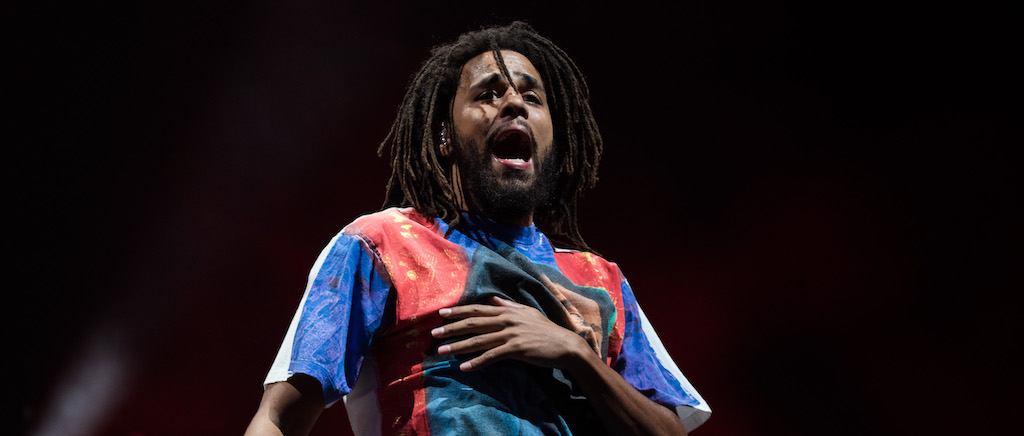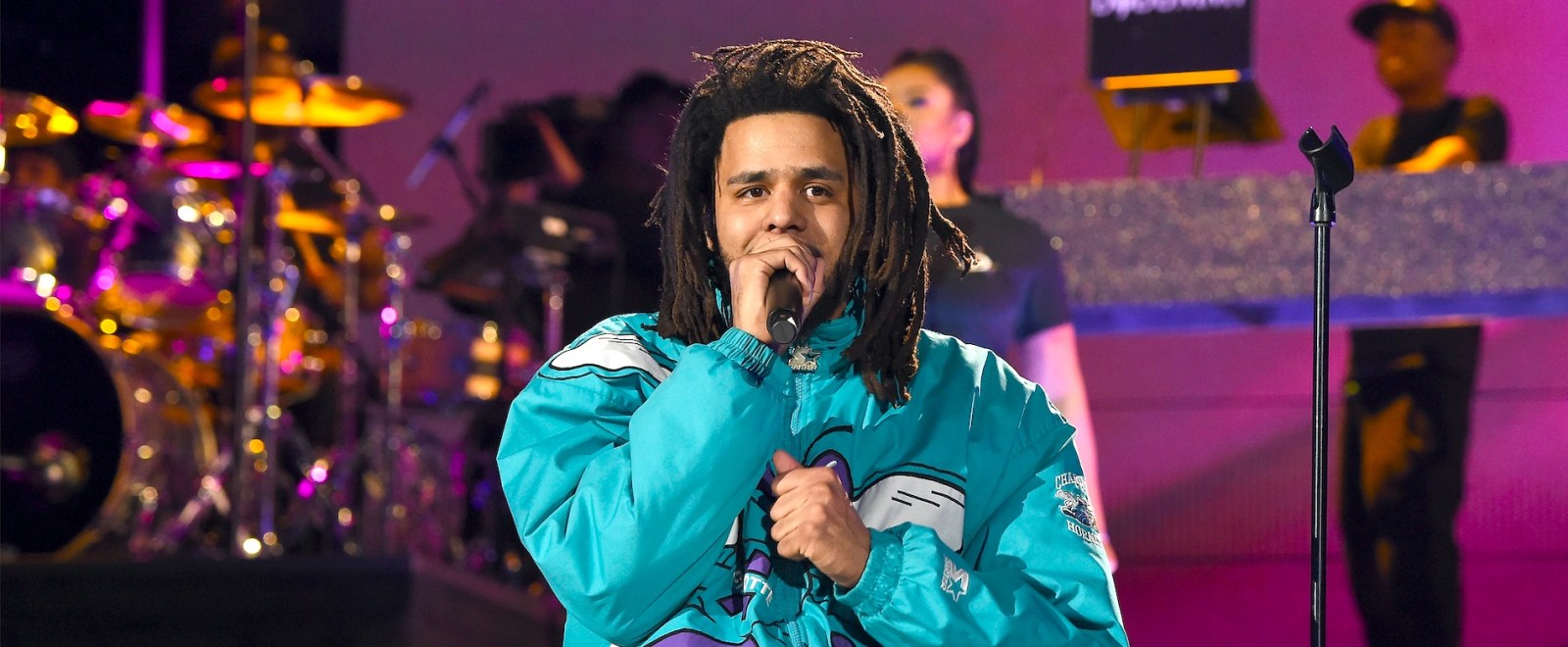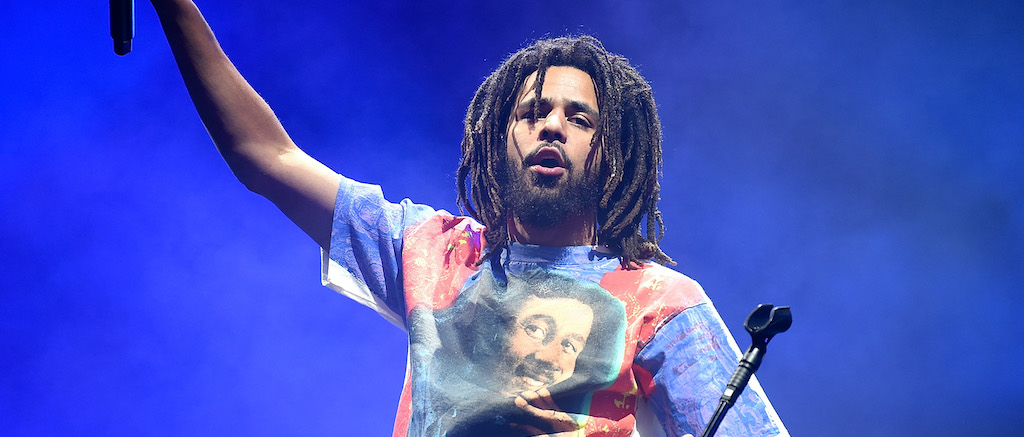
Last Friday, J. Cole released his long-awaited album The Off-Season after coming off the warmly received Dreamville compilation Revenge Of The Dreamers and a string of projects that have endeared him to fans as they’ve alienated him from critics. This Friday, Zack Snyder will see the release of his long-awaited return to the zombie genre, Army Of The Dead on Netflix after coming off the warmly received Justice League redemption experiment “The Snyder Cut” and a string of projects that have endeared him to fans as they’ve alienated him from critics. I like cosmic coincidences like this because they make it so much easier to illustrate the lines of thinking that lead to someone (me) declaring J. Cole “the Zack Snyder of hip-hop.”
By now, there are enough reviews of The Off-Season out to make some general observations. While Cole’s fans were obviously very excited about the project, running up its streams enough to make it an early frontrunner for best-selling album of the year, many critics were… shall we say “lukewarm” on the whole affair. The thing is fine and serviceable and even pretty good a bunch of times but the response is disproportionate to the craft. I suspect something very similar will happen with Army Of The Dead this week, as Snyder’s very own army of fans keep it somewhere in Netflix’s top 5 over the course of the weekend while any critics who didn’t get advance screeners will probably question its dialogue, plotting, and the general ludicrousness of its premise, which is that zombies are not just undead, but also have their own society and are kinda hot. Trust me, it gets weird.
That’s certainly the response I saw to the Justice League Snyder Cut, which was four hours long when it didn’t need to be and the nicest thing anyone could find to say about it was that it made more sense than the theatrical version. Ask a random comic book movie fan on Twitter, though — or worse, deign to point out the many, many flaws still readily apparent in the still incredibly drab, self-serious, and borderline pretentious (*ancient lamentation intensifies*) production — and those fans will talk about it like it’s the pinnacle of filmmaking and woe be unto anyone who even thinks of disagreeing. There’s a similar effect with Cole fans, who are nearly guaranteed to accuse you of being Lil Pump’s biggest fan if you express your legitimate quibbles with his work (apparently, they didn’t get the memo that that particular “beef” is over).
Meanwhile, rewinding all the way back to each auteur’s breakthrough work, the parallels multiply. When J. Cole dropped The Warm Up way back in 2009, it was hailed as a smart update on the lyrically-focused, socially conscious backpack rap that had obviously inspired it. Likewise, the 2004 remake of Dawn Of The Dead wowed audiences with its terror-inducing fast revenants, modernizing — and dare I say, resurrecting — a desiccated genre for a more cynical generation. However, both works had their detractors, too. For as beloved as Cole’s mixtape was, there were some who thought it lacked substance in favor of recreating the late ’90s aesthetic the rapper so obviously worshipped, without the incisive insights and unpredictable wit of the projects it aped. Dawn Of The Dead, likewise, was considered inferior to the 1978 George Romero original, which had the benefit of Romero’s biting satire of the then-emerging consumer culture and building on its predecessor’s (Night Of The Living Dead) racial commentary.
This is where the critics and fans tend to diverge, I think. For a critic, who may have a more extensive background than the average fan, the frame of reference is different. With a broader foundation of works to compare and contrast, it’s easier to pull examples of things each artist tries to do or moments where another creator said the same thing, but in a more salient way. For example, on The Off-Season, Cole directly lifts the chorus from Styles P and Pharaohe Monch’s “The Life” for “My Life,” instantly begging comparison between the two. But where Cole merely pairs it with dad joke punchlines like “Ja Morant, I’m on my Grizzly,” Styles’ version speaks about the tribulations of his existence and resisting the call of the streets and their inevitable consequences. “I have talks with the Lord and he’ll be callin’ me soon,” he growls. But the likelihood a teenage or young adult Cole fan has heard that, or even relates to it in a modern-day context, is slimmer.
The same goes for Snyder’s work. In Army Of The Dead, the attempts at social commentary are cringe-worthy. Between a ripped-from-the-headlines jumble of a refugee camp just outside zombie-occupied Las Vegas where guards abuse their authority and volunteers point infrared thermometers at residents’ foreheads to a godawful debate on whether a character of Japanese descent can say an age-old, politically incorrect children’s rhyme, Snyder’s swings at saying something relevant to the times whiff hard. Compare that to Night Of The Living Dead, where the primary breakdown between the human survivors is a barely disguised thread of racial tension between the two potential leaders. Also, spoiler alert on a 53 year old movie: The Black character is the only one to live to the end, in contrast to other horror films of the time, only to get shot by the supposed saviors, a bunch of good ol’ boys out on a tear. It’s left ambiguous whether they really think he’s undead or not. Now, that is social commentary.
But here’s where I give the kids some credit: They don’t have to see it the same way, because ultimately, art is about emotional connection. Fans may have encountered Cole or Snyder first, developing a connection with their work that they might never have with the more expansive canon of hip-hop or film. That doesn’t mean they might not also expand their palate through those references, either. It certainly feels like a short leap from Cole’s new album to Pharoahe Monch’s work, then to artists who worked with him, like Black Thought, Common, Jean Grae, or even M.O.P. A love for zombie films might lead a Snyder-ite down the rabbit hole to discover Romero, Edgar Wright, The Last Man On Earth, and the cinema of Korea and Spain, which have produced some of the most innovative work in the genre ever — Train To Busan is the only zombie flick to make me cry and Rec kept me up for two nights straight.
The only fault in critics or fans is when they fail to engage the other side in good faith. Critics don’t need to lord our knowledge over fans, condescend or goad them, because our goal should always be to provide perspective, guidance, and context. LIkewise, fans don’t have to take every critique as a personal insult; it’s okay to be protective of your favorite art because you feel like it’s part of your identity and those critiques can feel personal, but jumping down people’s throats on Twitter is unproductive and annoying, while only serving to bias casual consumers against you and your favorite. It’s okay to like what you like, but try to keep in mind that everyone is coming from a different place, and they might not connect with the work the way you do. With that said, that may be the way J. Cole and Zack Snyder are the most like each other: However their work is viewed, they are both great at inspiring that connection.




 (@gbenlola)
(@gbenlola) 
 (@vox00_)
(@vox00_) 
 /I Did Shit With Mariah (@big_business_)
/I Did Shit With Mariah (@big_business_) 
 HiphopSessions (@AllHHSessions)
HiphopSessions (@AllHHSessions)  .
. (@thoughtfulbae)
(@thoughtfulbae)  (@Kazeem)
(@Kazeem) 
